| |
"I don't think working-class voices will be silent in conversations about our society, but certainly they need amplifying. When we don't listen to working-class voices we lose plurality of thought and perspectives from people who are often on the receiving end of harsh inequalities. Austerity was a political choice rather than an economic necessity and the decisions made in that period affected working-class people more than anyone else. Most Westminster politicians only care about listening to what working-class people think when there are elections to win." |
| |
Director, Paul Sng** |
Preface: This is a review of a documentary about an extraordinary photographer. Because her work has been unfairly used in the past, Tish Murtha's daughter, Ella, the custodian of her mother's legacy, has kept a tight rein on print and online use of Tish's photographs, something I'm completely sympathetic towards. So if you want to see examples of Tish Murtha's extraordinary work, please dive into the British Culture Archive, via the link after the review.*** The publicity pictures from the film have been authorised. One final thought… why does black and white photography invoke 'reality' so much more than its colour brethren? Look at Tish's work and be transported. In practical terms, black and white photography, with a little research, can all be developed and printed successfully at home without dependence on a laboratory.
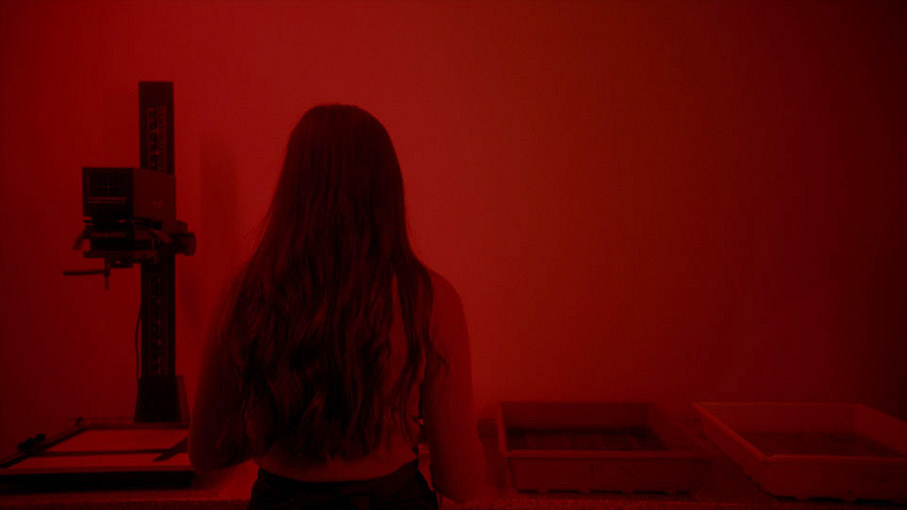
Many years ago, I was once in a photographic art store in Wyoming while attending a film festival in Jackson Hole. Upon seeing one of the many versions of the justly famous event 'Grizzly Bear fishing in Alaska', mouth agape, fish inches from its grisly fate, I casually remarked to my friend at the time that we can not afford to trust any still image anymore. The owner of the store was very quick to offer undisputed provenance of the original photo's 'single-click' authenticity. As we wander into the darkened corridors of AI and deep fakes, the same now could be said of moving images. Is history the only proof of authenticity? If we know image editing software was not invented at the time of the taking of a photograph, can we still be sure of its 'reality'? Yes, people faked photographs clumsily before the digital age but it was difficult to fake a 35mm film negative, the first and best proof… at that time.
In the same year that Simon Robert's presumably non-doctored version of the Grizzly event took the top prize in 2023's Wildlife Photography Awards, a feature documentary was released whose subject's work and bona fides are rock solid. Like the celebrated Magnum photographs, the work of Tish Murtha is as raw, vital, affecting and intensely political as any of her world famous peers' efforts in the Magnum cohort. Her astonishing and mostly black and white photographs don't cover world-changing events, wars or cultural upheavals. They are evidence of abject political failure in the UK at the time and how her beleaguered community squeezed joy, defiance and even love out of the most meagre fruit offered. Her collective work is an extension of her outrage at social injustice and her photographic subjects, personifications of those still smiling, existing, making do in the context of poverty and crushing unemployment. If anyone could qualify as a chronicler of her time, it would be Tish Murtha. She was suffering the same hardship as her friends, family and community. When money was really scarce, she would carefully choose which weeks to eat and which to not. It was a small miracle that she managed to get her hands on a camera given her lack of resources. But that she did, to the benefit of us all.
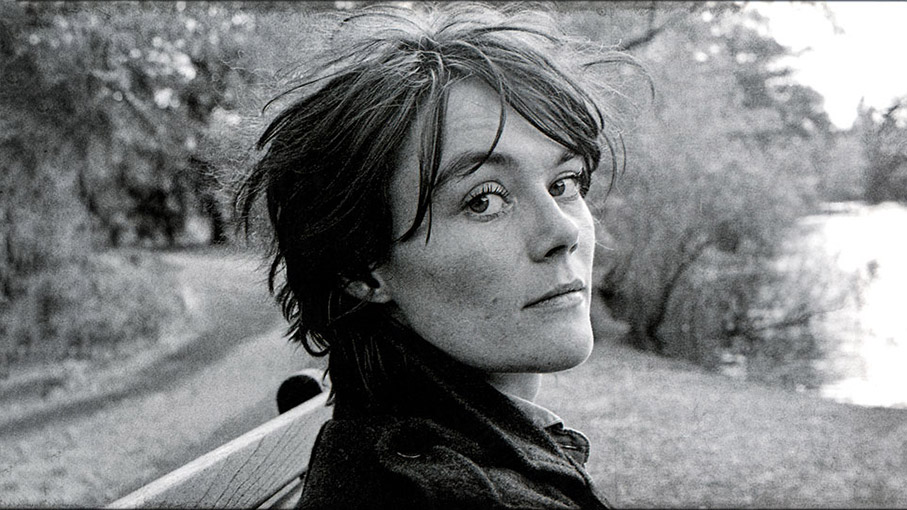
To give a little context of the time. The early 80s were desperate times for underprivileged people in the UK. Tish Murtha's work was borne of that injustice. The country at the time had just voted Margaret Thatcher in as Prime Minister. I heard yesterday, June 11th, 2024 on BBC Radio 4's Understand The UK Election that a member of the candidate selection committee in 1958 was so taken by the then 33 year-old future PM, that he rigged the ballot enabling her to win. Let that sink in. She fraudulently became an MP, a fact that was buried for decades and revealed in Charles Moore's biography of one of the most divisive and loathed of UK Prime Ministers. One last Thatcher anecdote… As PM she was advised to attack the Liberal Democrats who had just unveiled a bird as their logo. The powers that were thought that by using verbatim extracts from Monty Python's Dead Parrot Sketch, this would appeal to the British public. Not only is the speech excruciating to listen to, it's quite clear that she had no idea what she was saying. The cherry on this cake for her detractors is that she reportedly asked "This Monty Python, is he one of us?"
Once in power, Thatcher had the trade unions in her sights from the off, believing that their power disrupted Parliament's ability to govern. The prolonged Miners' Strike was the most famous example of the war between the PM and working people. Living in South Wales at the time, I was acutely aware at how significant the strike was. According to a BBC report in 2004, she destroyed the power of the unions for almost a generation. To bring inflation under control, she sacrificed whole towns and cities to economic collapse. One of those areas crippled by poverty and neglect was Tish's neighbourhood of Elswick in the West End of Newcastle-Upon-Tyne. Under Thatcher's premiership was born the Youth Opportunities Scheme, a blatant attempt to bring down the high levels of unemployment numbers by offering menial and degrading jobs and cutting off benefits from those who refused to do them. As Tish remarks, it was "…vandalism on a grand scale. The Free Market philosophy, depriving them of a productive and meaningful future."
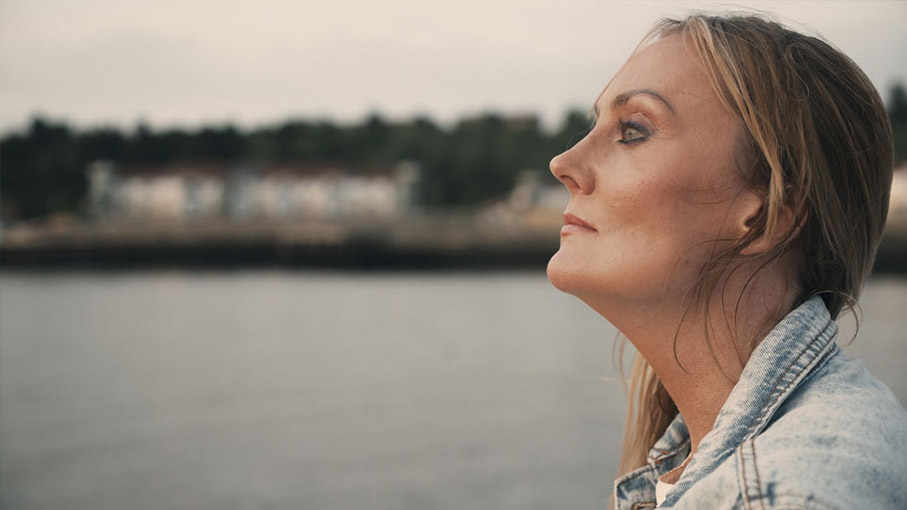
Tish's daughter, Ella, is our guide to her mother's life and work and those whose lives she chronicled. She is very accomplished and comfortable on screen probably driven by the knowledge that she is interacting mostly with old friends and family and promoting her mother's evident talent in front of many more millions of appreciative eyes. The film's narrative is straightforward. "If you want to photograph the tribe, you've got to be part of the tribe," which is as good a way as any of summing up the intimacy she often captured in one of the most deprived areas of the UK. Her mission, as underlined by Ella's words, was to make sure the people of her life were acknowledged as having worth and humanity. Art curator, Gordon McDonald saw her photographs at an exhibition and was captivated by them and felt they were important enough to be promoted, providing representation for the working class, usually fodder to the rich and powerful once history is written. It's almost a crime that it took the best part of a decade after Tish's death to get that formal recognition.
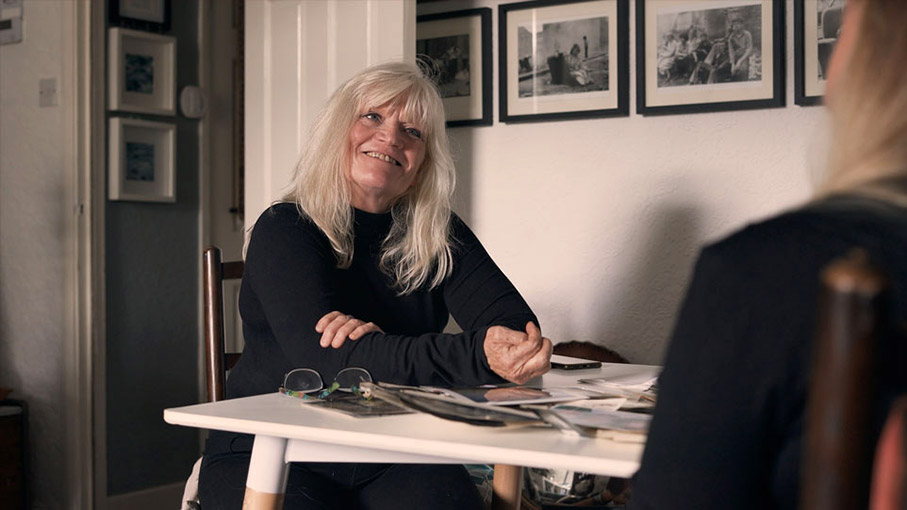
Family members take up the autographical details of Tish's life and a very sharp focussed sense of character is quickly established. As McDonald says "You just don't meet many people like Tish." Elswick was a wasteland, demolished houses everywhere, arterial blood on the black and white streets. Seeing the faces of her surviving family and how living that hard, unemployed, scavenging childhood changes you despite having fun and loving the freedom as an unsupervised child in what looks like a war zone. Tish's home life as a child wasn't without anxiety. Tensions existed from the abuse and control exercised by Tish's father, "a man of his time," as one of her brothers describes him euphemistically. People who had the resources to do so had left their houses to ruin and migrated from the worst square mile in the UK at the time. And they had left in a hurry sacrificing their belongings, stuff that then belonged to whatever child found them first and who was tough enough to defend their spoils. It is one of these houses where Tish found her first camera. She started taking photographs, learning as she went, from about the age of 15. Local student friends had installed a darkroom in their lodgings and that's when the seed of ambition suddenly cracked open. These friends pushed Tish, burdened with all the built in insecurities of a life raised in poverty, to get a formal training in her craft. My favourite exchange in the film made its way to the title of this review*, how she got accepted into a documentary photography course in three seconds flat.
Directing a 90 minute feature documentary primarily consisting of talking heads (two words anathema to broadcasters and commissioning editors) is quite the challenge. I was heartened to see that director Paul Sng has not introduced ridiculous camera angles to 'up the cut rate', to simulate dynamism. As long as the talking heads are interesting and revealing, where's the problem? Given that, they are all framed as conversations with Ella Murtha. As such we are listening to real conversations with authentic emotion. I suspect these conversations were shot with multi-camera coverage. As an editor with 40 years behind him, I'm well aware of the tricks and craft that goes into making these conversations appear completely natural and editors Angela Slaven and Lindsay Watson show their talent and sensitivities in many other ways. There is no 'Ken Burns' effect employed to give Tish's stills more urgency. They are centre frame rock solid in respect of the work itself inviting you to really take the images in. Split screen is employed sometimes to make subtle critical points. Is it a coincidence that Tony Blair makes an appearance framed on the right of screen? But perhaps contradicting that idea is seeing Tish herself on the right of a photograph while we are being told, almost needlessly in the voiceover, that Tish was politically firmly on the left!

Operatic music became the musical signature of the Murtha household, while Tish's own love of jazz was the inspiration for naming her daughter Ella. The original score by Alexandra Hamilton-Ayres is perfectly attuned to the subject and the context the subject lived through. It's never melodic or bombastic but calm with a sense of loss and melancholy. Perfectly cast as the voice of Tish is actress Maxine Peake. Her work is directly based on the letters and notebooks written by Tish herself. She inhabits the role so well you never question that it's not actually Tish Murtha's own recorded voice.
While the voiceover could conceivably be Tish's own, the dramatic recreations of household moments of reflection in Tish's life are clearly not home movies but evocations of Tish in the spirit of the time in which she lived. Most, if not all, are covered in one shot with the actress Shin-Fei Chen directed to move very slowly with her back to us while in her kitchen or playing operatic arias. Some are presented in full frame and graded with the 80s in mind, others are part of a split screen pair while more information is being relayed on the right hand screen. At least here, Tish is always on the left… I think the latter presentations work much better than the standalone shots. Visually, there's more to take in. The standalone shots just slightly pick at the hem of the effect making you aware that this is a recreation. You know this isn't her and dramatic reconstructions, though sprinkled throughout, might have been more effective with a close-up montage approach, something the budget may not have made possible. This is a very personal take on these shots and the tiniest of issues.
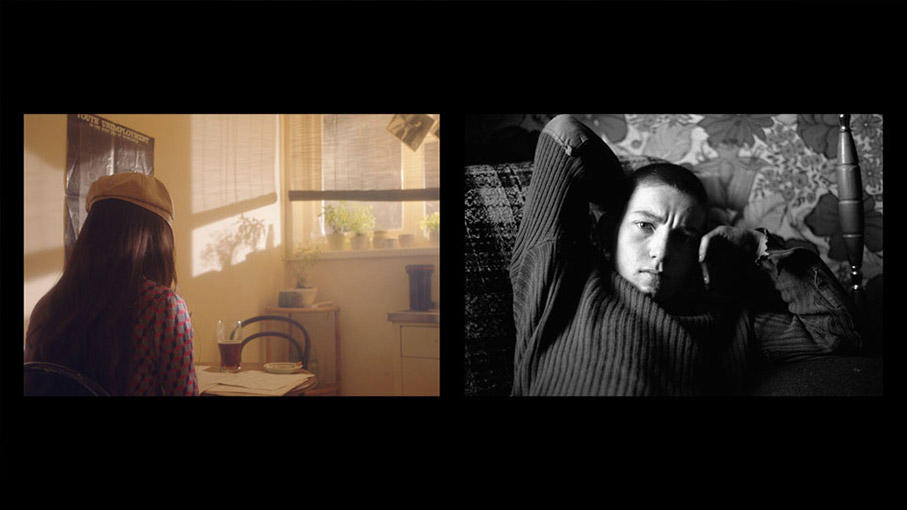
That one nit-pick aside, Tish is a deeply moving, emotive and rousing story of an unsung social documentary photographer, odds firmly stacked against her but having a gifted eye, a bonding empathy and a sensibility that would have made her well-known had she been recognised and celebrated for her gift at the time. I hesitate to say had she been a man, she may have had chances denied to women in the 80s but that's probably just as true. Speaking of time, Tish had to take a lot of it to get to know her subjects and therefore she would never be paid for her work an amount that could cover the expenses accrued over that time, let alone payment for the actual job. I know dedicated filmmakers like this, the very definition of passionate. Ella, her daughter, is doing a fine job protecting the legacy of her mother and I hope to someday get hold of one of the few photographic books she published of her mother's work. Having researched online, there are a few pre-owned available but at very high prices, money of course that does not go back to Ella. Check out Ella's official website,**** and The British Culture Archive*** and keep Tish's extraordinary work alive.
Tish is available to watch on BBC iPlayer, here.
** https://narcmagazine.com/interview-paul-sng-director-and-jen-corcoran-producer/
*** https://britishculturearchive.co.uk/product-category/tish-murtha-limited-edition-prints/
**** https://www.tishmurtha.co.uk/home.html
|